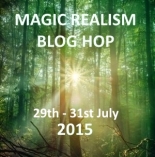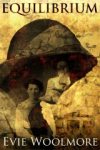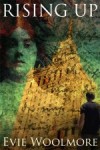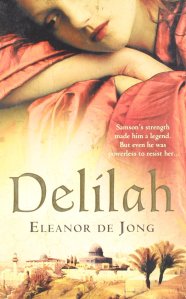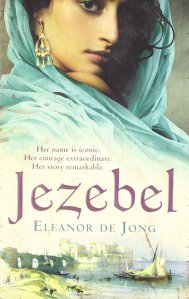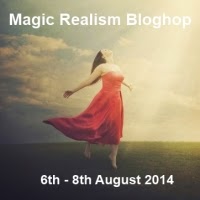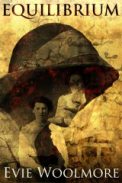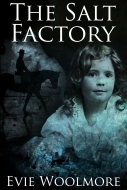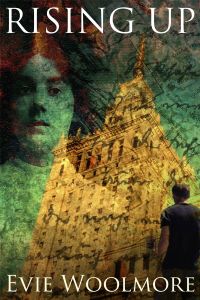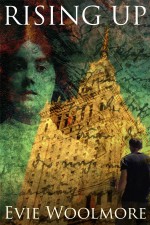I’ve known I am an empath for over thirty years. I’ve had a name for it for about the last ten. And the first time I read anything even remotely mainstream about it was this weekend. Richard Godwin’s article for The Guardian read as science, psychology, self-help, fraud or fakery, depending on your point of view. Certainly the faithful Guardian commenters below the line had their usual array of cynical and sarcastic responses, and very few were brave enough to say out loud ‘I’m an empath too’.
There are problems with the article, the flaws in which were swiftly picked up on by the Guardian faithful: the headline empath had taken drugs which led to an awakening of his ability, and the narrative ‘proofs’ of some of the other empaths were described in such a way that it would have been easy to look at prediction as simply cause and effect. That is not to say that any of them were being deliberately fraudulent or misleading. But it demonstrates the difficulty of presenting anything for universal acceptance which is not scientifically grounded. I’ve written at length in other blogs here about the interface between science and the paranormal – if that’s the term you want to use – and my curiosity about what science might reveal were it to take a closer look at more of these sorts of experiences. Until someone takes a rigorous look at some core scientific phenomena that might be useful to prove or disprove by extension into some new contexts, we will remain in the realm of claim and ridicule.
Godwin talks to Professor Simon Baron-Cohen, a researcher and expert on autism and developmental psychopathology, about the different types of empathy (cognitive, affective and consolatory), which anyone who experiences strong physical and emotional reactions to others would recognise. He also reflects on the societal value of empathy as a means of connecting with others, which can enable social and political resolution. I’d be interested to know whether Baron-Cohen has done any research on the correlation between autism and empathy though; I am aware of a couple of people with diagnosed autistic conditions who demonstrate many of the same qualities that the subjects of Godwin’s article claim to have, but who wouldn’t call themselves empaths or anything more than hyper-sensitive as part of their particular condition. I have seen one of these people predict a future outcome with staggering accuracy, and hone in with startling precision on the thoughts of a colleague in such a way that the only explanation would be highly sophisticated and nuanced communication on another level, whatever level that turns out to be, biological or otherwise.
I’ve devoted some of my literary life to exploring aspects of communication on another level, partly as a way to explore the challenges I have experienced in my own life. I don’t know that I believe what I’ve experienced any more than the averagely cynical Guardian reader, but I can only tell you that things that have happened to me have been so indisputably clear that I have the evidence of something. Like some of Godwin’s interviewees, I frequently ‘hear’ the people who are calling or texting me long enough in advance to register the notion, wait, count to five, look at my phone and nod as their name appears. I have stolen unexpected news from people’s mouths as they brought it to me, and – occasionally – anticipated something that could not otherwise have been predicted. I don’t talk to others about this because I find it difficult to manage their response to me; other people don’t know how to respond without cynicism or ridicule, or sympathetic bemused kindness at what I have deluded myself into believing. And yet those whose news I have stolen always remember how weird it is, even if they can’t explain it and feel a faint indignation at how I blurt things out before they have a chance.
Godwin speculates on the empath as a “millennial rebrand of the old-school psychic”. Certainly, the scepticism is strongly reminiscent of the late nineteenth and early twentieth century disdain for mediums of the sort I wrote about in Equilibrium. I suspect there is a difficulty with the word ’empath’ in this case: as Baron-Cohen identifies there are scientifically valid aspects of experience that promote kindness as well as creating a visceral response to the sensory overload described several times in Godwin’s article. Empathy – the process of recognising and responding to what someone else is feeling – is valid and valuable. But associating something scientifically acknowledged with something speculative and unconfirmed will be taken by some to be a corruption of the word, regardless of the people who claim its existence in the latter terms. Is a metamorphosis of one into another – across the divide of ‘proof’ and ‘truth’ – the problem here?
I came to the conclusion that I could help people without resorting explicitly to ‘my ability’ though it is as natural to me as breathing. I wouldn’t dream of charging someone for my insight, even though it is daily at least as acute as many of the scenarios described in Godwin’s article. I am fortunate that the different roles I have beside writing enable me to use these insights for the benefit of others, without drawing attention to them, and I have learned to manage them, smuggling them in around common sense and truisms for years now, so as not to alarm or unsettle. Occasionally my mouth runs away ahead of my brain. But whose doesn’t? “How did you know?” people gasp, frown, smile. “You’re the first person I’ve told and I only found out yesterday.”
“Lucky guess,” I say. “Congratulations.”
*****
Evie Woolmore is the author of magical realist novels Equilibrium, Rising Up and The Salt Factory. She is currently working on a new novel.
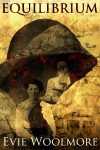
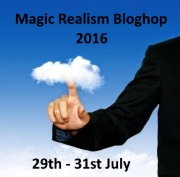 Magic realist novelist
Magic realist novelist 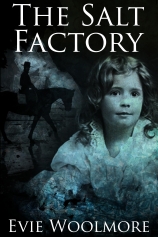
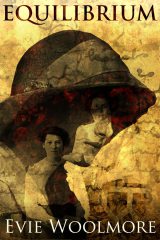 Through the strands of her loose blonde hair that fall in front of her face, she can see the conductor’s beady gaze peeping over the edge of the orchestra pit. He has watched her a dozen times already but still his eyes widen when he glimpses her ankles, so distracted by this enchantment that he is oblivious to what he really sees. But that is at the heart of Epiphany’s success and she has learned to be glad of it.
Through the strands of her loose blonde hair that fall in front of her face, she can see the conductor’s beady gaze peeping over the edge of the orchestra pit. He has watched her a dozen times already but still his eyes widen when he glimpses her ankles, so distracted by this enchantment that he is oblivious to what he really sees. But that is at the heart of Epiphany’s success and she has learned to be glad of it.
